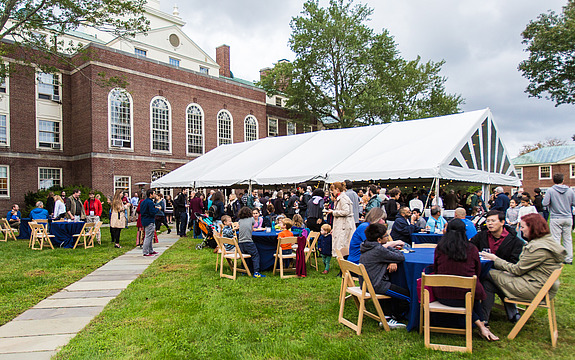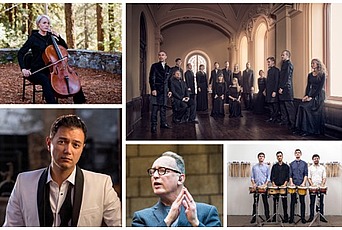272 Leading Scholars Join Institute for Advanced Study in 2018–19
Press Contact

The Institute for Advanced Study welcomes four new permanent faculty and 268 visiting scholars and scientists, representing 25 countries from around the world, as it begins the 2018–19 academic year.
Scholars accepting senior professorships at the IAS this year include: in the School of Historical Studies, Francesca Trivellato, a distinguished historian of economic, social and cultural history of the early modern period who comes to the IAS from Yale University where she was the Barton M. Biggs Professor of History, and Myles Jackson, an internationally renowned historian of science, who was formerly Albert Gallatin Research Excellence Professor of the History of Science at New York University. In the School of Mathematics, Camillo De Lellis, a prolific mathematician and geometric analyst comes to the IAS from Universität Zürich, and Akshay Venkatesh, a winner of this year’s Fields Medal and number theorist, joins from a professorship at Stanford University.
“As we welcome new Members to the Institute, we are excited for all the possibilities that lie ahead to push the boundaries of knowledge and shape new lines of inquiry for deeper exploration,” said Robbert Dijkgraaf, Institute Director and Leon Levy Professor, at the official start of the academic year on September 24. “One thing that holds true since the founding of the Institute is that no two classes are alike. Scholars bring their own ideas, experience, culture, and questions about the world and contribute to a base of knowledge that can be cultivated and synthesized in innumerable ways.”
In addition to the new permanent faculty, 268 distinguished scholars join the IAS this year from 116 institutions worldwide. The scholarly community spans young postdoctoral fellows to distinguished senior professors working to probe the deepest questions of the physical and social worlds.
Research that will be pursued by scholars at the IAS this year will focus, among other areas, on theoretical machine learning, quantum information and black holes, the structure of space-time, the origins and long-term fate of the universe, analysis of ancient DNA to elucidate history, and origins of modern democracy and human rights. The School of Mathematics, among other topics studied this year, will host a special program on “Variational Methods in Geometry” to find new connections and further develop the variational theory of objects, like minimal surfaces, that mathematicians have studied for more than two centuries. In the School of Social Science, much of this year’s scholarship will focus on “Crisis and Critique.”
The Institute provides scholars with one or more years of study to accelerate their research. The IAS creates and sustains an environment in which Members, who live in an academic village of apartments set at the edge of the Institute’s 800-acre campus, and share libraries, a dining hall and office space, can collaborate and work independently as they need to do.
“Intellectual freedom is paramount to developing new knowledge and methodologies that shape the future,” added Dijkgraaf. “Ensuring an environment that reflects the highest standards and most inclusive principles of the scientific community, as well as encouraging the expansive sharing of knowledge around the world, remain defining characteristics of the Institute for Advanced Study.”
To learn more about our scholars and their research visit www.ias.edu/scholars/current-scholars. A publication of current Faculty and Members is also available here.

